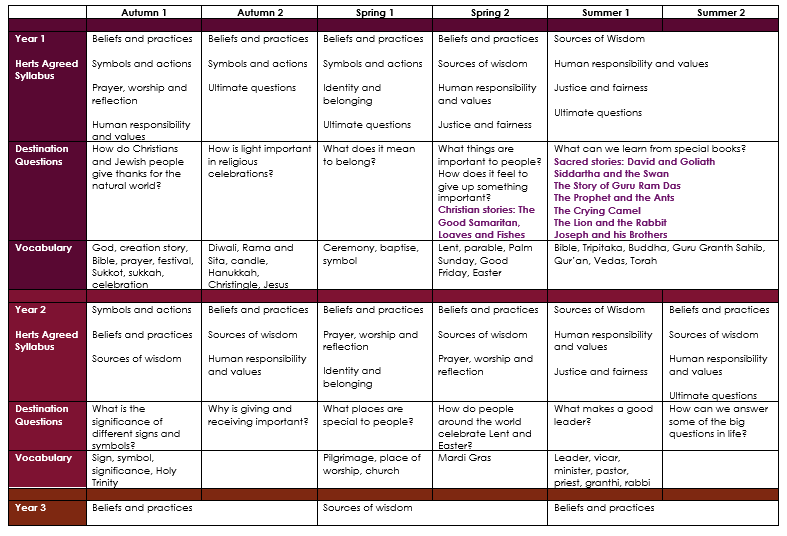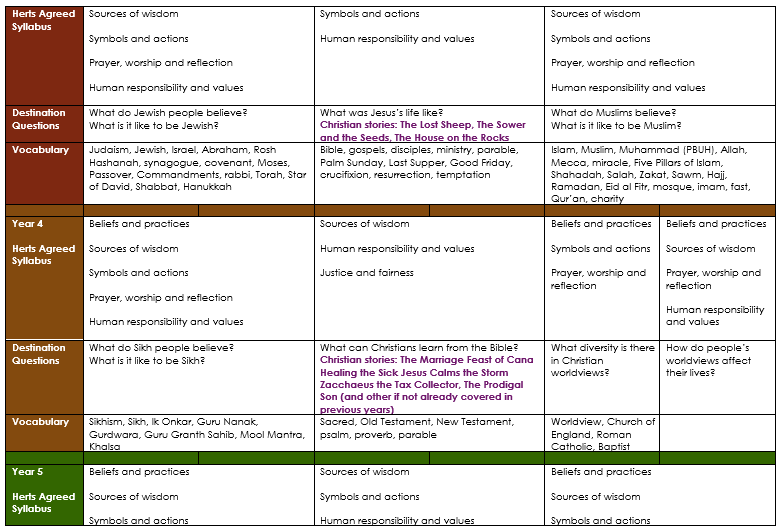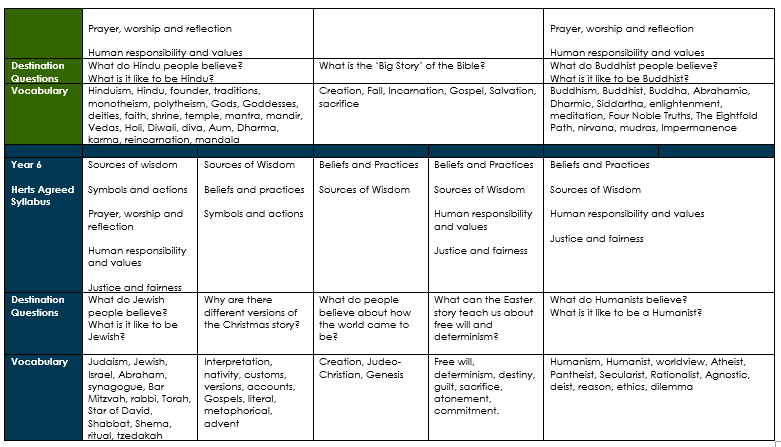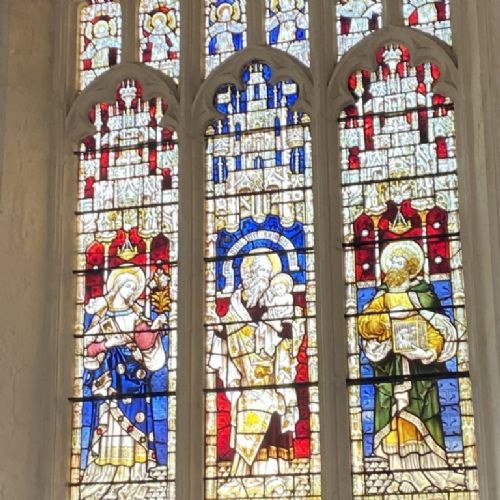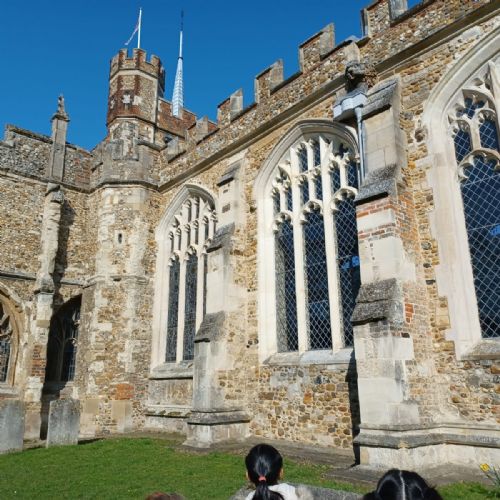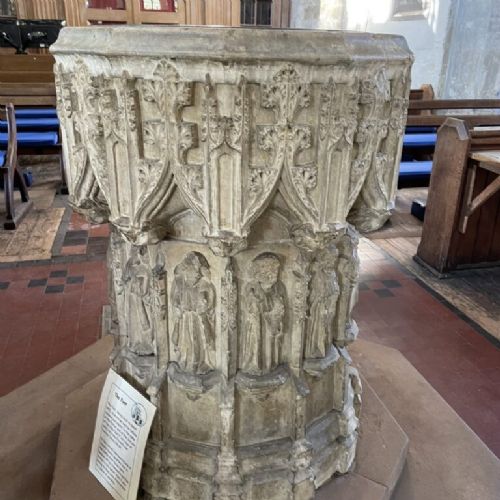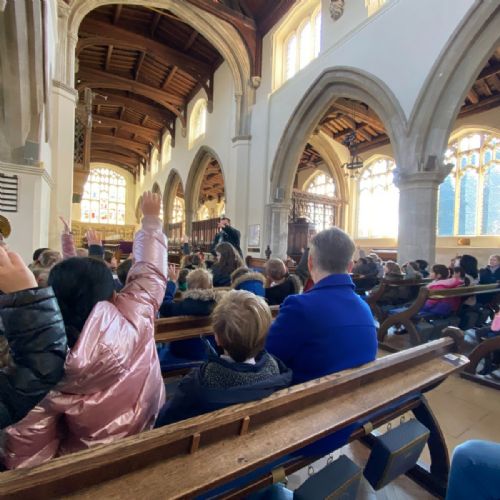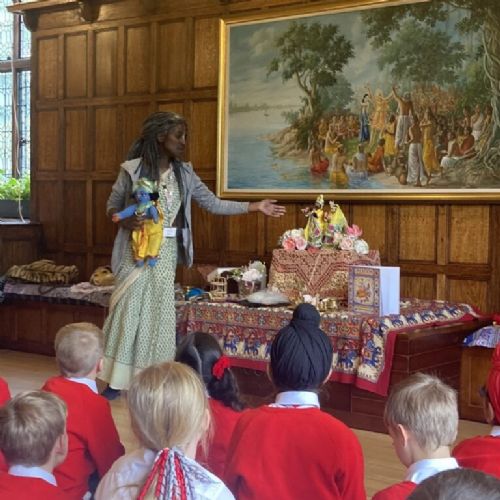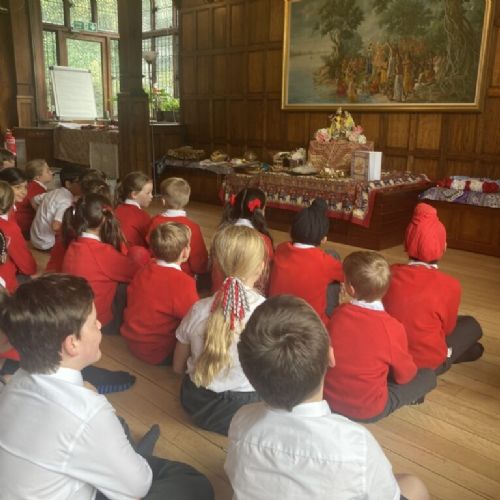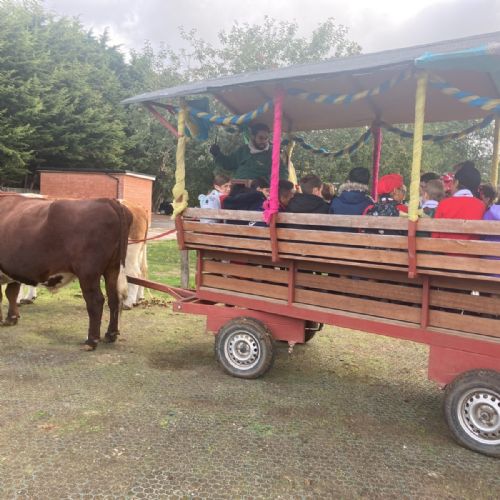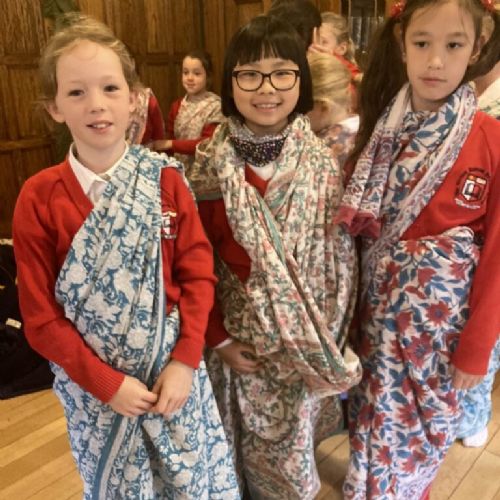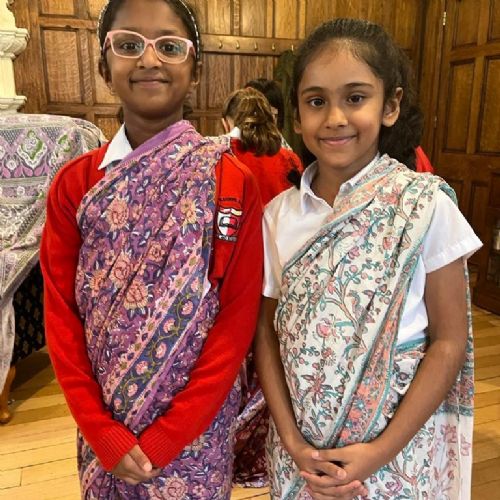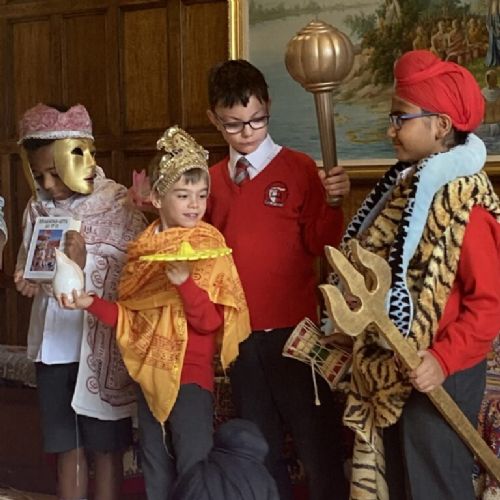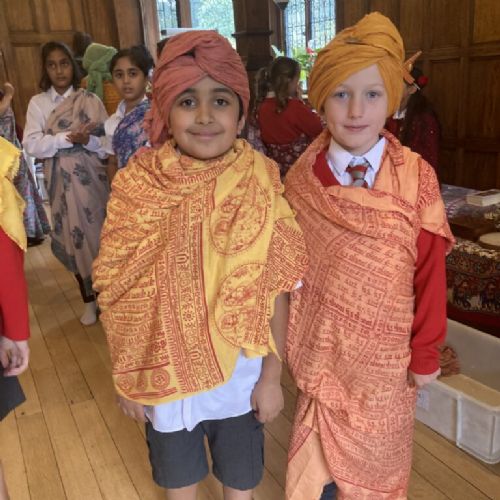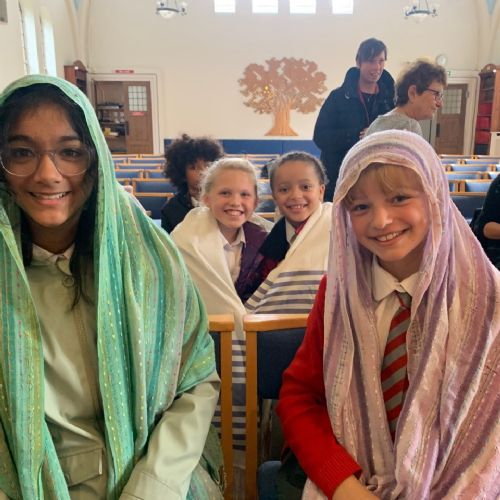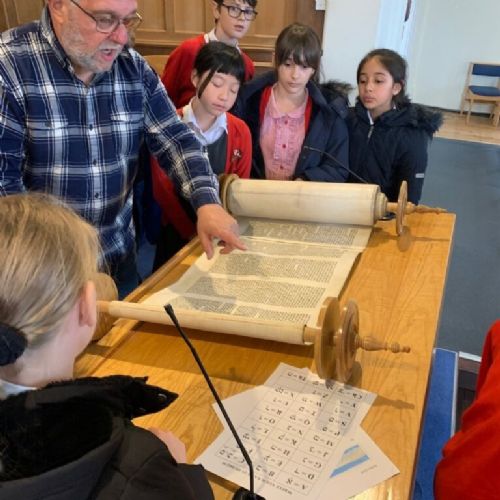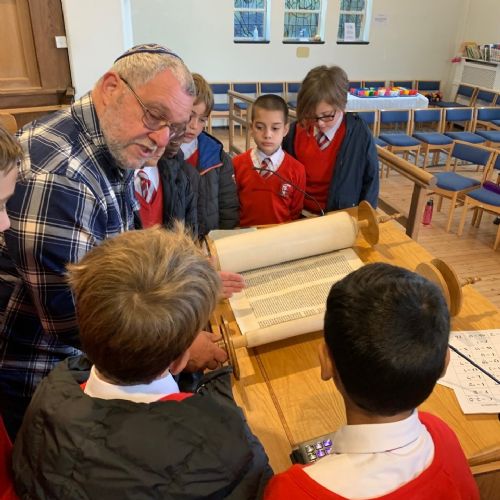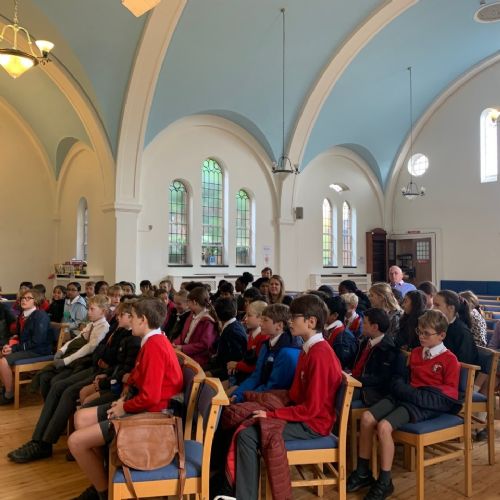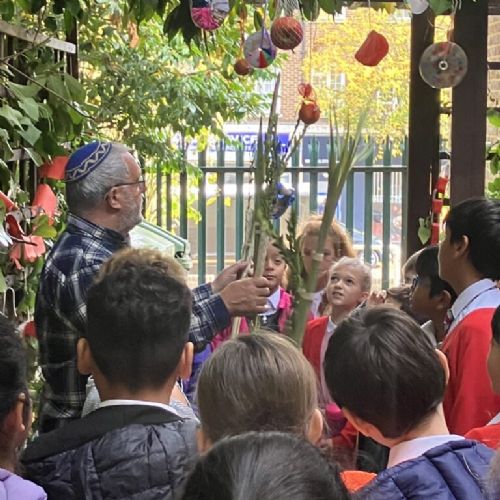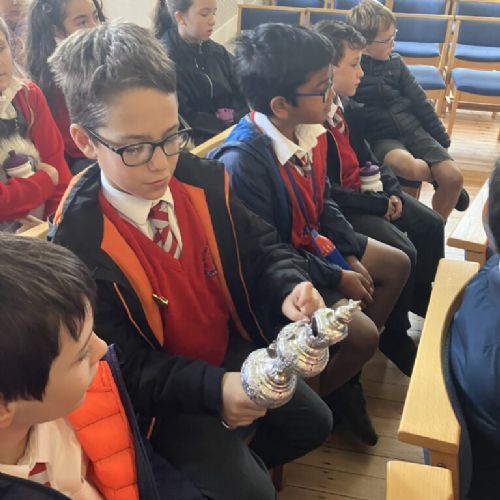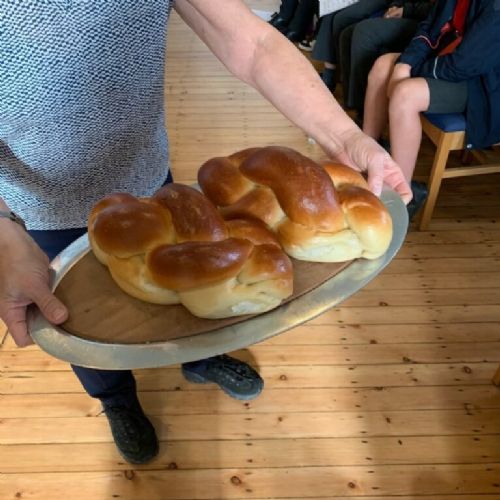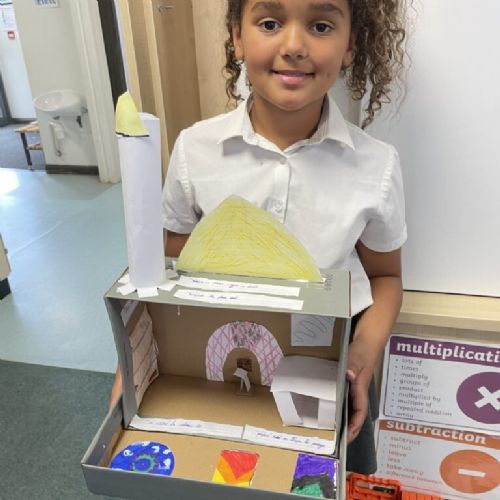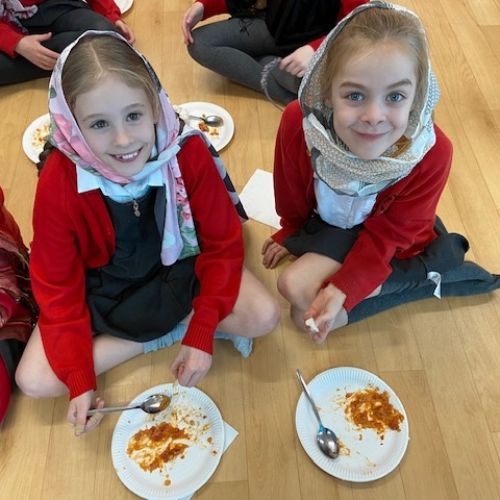Religious Education
Intent
Religious Education plays a vital role in the development of pupils at William Ransom School, not only through regular classroom teaching, assemblies, visitors and trips, but also through our whole school values. As a Values Based School, we aim to support the development of the whole child spiritually, morally, socially, culturally and intellectually. As children learn about different beliefs and explore those that they hold personally, they are able to confidently express and adhere to their own values, whilst respecting the values of others.
The recently published Ofsted Research Review on Religious Education (2021) refers to three types of knowledge used in RE:
- Substantive knowledge: knowledge about various religious and non-religious traditions
- Ways of knowing: pupils learn ‘how to know’ about religion and non-religion
- Personal knowledge: pupils build an awareness of their own presuppositions and values about the religious and non-religious traditions they study.
As a primary school, at William Ransom, we tend to focus on the first and third types of knowledge, though in Upper Key Stage 2, children do begin to examine ‘ways of knowing’. For example, in Year 6, children compare creation stories from different sources.
In EYFS and Key Stage 1, the RE curriculum tends to be more thematic – i.e. units that are developed around themes. For example, our Year 1 unit on the natural world looks at Christian and Jewish creation stories, as well as ways in which Christians and Jewish people show thankfulness for the Earth’s resources during Harvest Festival and Sukkoth.
In Key Stage 2, we continue to teach some thematic units, such as our Year 6 unit on free will and determinism, but the majority of our units are systemic – i.e. focused on particular religions. All six major religions are covered: Christianity, Sikhism, Hinduism, Islam, Buddhism and Judaism. We also cover some non-religious traditions such as Humanism.
Because of the cultural impact of Christianity in England, it is revisited each year in a progressive manner.
Our RE curriculum aims to enable pupils to become religiously and theologically literate so they can engage in life in an increasingly diverse society. It is not about telling pupils what religious views they should have but rather assisting them in gaining shared human understanding, developing personal identity and searching for meaning in the context of evaluating different viewpoints.
Implementation
At William Ransom, we follow the Hertfordshire Agreed Syllabus of Education 2023-2028, but there is plenty of scope within this syllabus for us to create our own exciting curriculum. Lessons are planned with care to ensure that children increase their substantive and personal knowledge in a way that is highly engaging and meaningful.
Much thought has been put into our curriculum, to ensure that it is broad, balanced and exciting:
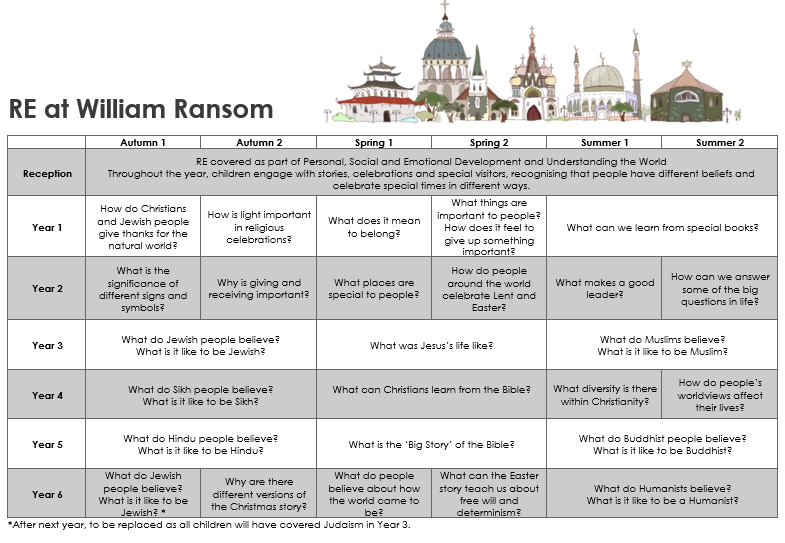
High quality resources are used to bring our RE lessons alive. Children are able to examine artefacts, watch videos, read and act out stories, look at artwork, and role play religious traditions. For example, in our Year 4 Sikhism unit, our classes create their own Langar, sharing a chickpea curry, to greater understand this tradition of service and equality.
RE is a subject which lends itself to class discussions, and, through extensive practice, the children at William Ransom are keen, confident and respectful when expressing their opinions and asking questions. Children particularly enjoy getting the chance to be the ‘expert’ if their own religion is being taught, and we value greatly the richness of their personal experiences.
Children are able to record their learning and thinking in a variety of ways, with increasing opportunities for extended writing as they move up the school.
School visits are a very important aspect of our curriculum. We enjoy annual visits to local places of worship, such as the Ramgarhia Gurdwara, St Mary’s Church, the Grace Baptist Church, and the Church of Our Lady Immaculate and St Andrew. We also venture further afield, to the Radlett Reform Synagogue and to the Bhaktivedanta Manor in Watford. These trips represent some of the highlights of the year for our pupils, offering a chance to truly experience the traditions of different religious beliefs.
Over the year, we are fortunate to be able to welcome visitors to our school to support our teaching of Religious Education and pupils’ wider development. For example, Phase (Churches Together in Hitchin) works with our Year 5s and 6s each year, providing mental health workshops. William Ransom also takes part in charitable ventures such as the Christmas Shoebox Appeal.
As a school, we value all types of diversity, including diversity of religion. Our Diversity Club, made up of Year 5s and 6s, provides an opportunity to celebrate how fortunate we are at William Ransom to have pupils of many faiths, as well as those who do not practise a religion. Respect, curiosity, and acceptance are modelled by the members this club in assemblies and other whole school events.
Impact
We have a clear skills progression in Religious Education at William Ransom. By Year 6, children will have studied in depth the six main world religions, as well as non-religious beliefs such as Humanism. They are able to describe the main beliefs, traditions, symbols, stories and places of worship of these faiths. Armed with this substantive knowledge, our pupils are well-placed to explore both their own personal beliefs and answers to life’s big questions.
Alongside academic knowledge, we aim to instil a sense of community in our pupils – both within our school and in the wider world. Understanding the role that religion plays in the community is a key part of this. During their time at William Ransom, children will have explored how being a part of a faith can create a sense of belonging. They will have seen how diverse faiths can find common ground in their values. Regardless of their own religious beliefs, they will be equipped to face moral choices and will have the sense of shared human responsibility needed to become the ‘compassionate, caring and responsible members of the community’ we talk about in Our Aims.
